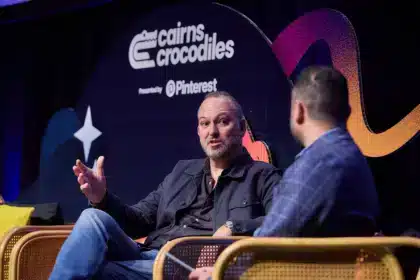British PR doyen Mark Borkowski says US President Donald Trump’s treatment of Ukraine President Volodymyr Zelenskyy is another example of how he has ripped up the communications rule book and the industry either needs to evolve or become irrelevant in a world where noise is currency and words are devalued.
When a Trump-supporting journalist heckled Ukraine President Volodymyr Zelenskyy for not wearing a suit, he showed us all how PR, media and communications have changed forever.
A week on, and I am still thinking about that bizarre, telling moment: JD Vance standing beside Donald Trump as Volodymyr Zelensky, a wartime leader, was questioned, not about war, democracy, or geopolitics, but about why he wasn’t wearing a suit.
It was a question that should have been inconsequential. Instead, it became a symbol of the way the PR game has shifted.
“You’re at the highest level in this country’s office, and you refuse to wear a suit – do you own a suit?”
The question came from Brian Glenn, a correspondent for Real America’s Voice, a right-wing cable channel that has pushed conspiracy theories about non-citizen voting and serves as a key distribution platform for Steve Bannon’s podcast which is banned from YouTube and Spotify among other mainstream platforms.
“A lot of Americans have problems with you not respecting the office.”
This wasn’t just a petty aside: it was a calculated, premeditated moment.
And it was not designed to add theatre to a press conference; it was about a deeper shift in how narratives are controlled, how attention is manipulated, and how truth itself is being devalued. It was a reminder that in today’s media ecosystem, who asks the question, and how they ask it, is just as important as the answer. The Zelensky question wasn’t an accident, it was a symptom of a world where perception is engineered.
We no longer live in a world where the media functions as a singular town square. Instead, we exist in fragmented information silos, where algorithms dictate reality, AI-driven bots amplify outrage, and clickbait shapes public perception. And PR – the industry that once existed to shape reputation and public discourse- has become entangled in the same performative economy that rewards noise over nuance, engagement over accuracy.
Trump has rewritten the playbook. He doesn’t just control the message; he controls the conversation itself. He stage-manages his press corps, bans major outlets like AP, and ensures that narratives are shaped by those willing to play his game.
This is not just a crisis for PR’s. It is a crisis of public discourse, of truth itself. The attention economy is reshaping power. When noise is currency, the meaning of words is devalued. When information is tailored to echo chambers, objectivity becomes irrelevant.
PR, media, and politics are now playing the same game of not just fighting for attention but weaponising it. The question isn’t whether PR needs to evolve, it’s whether we even recognise the ways in which the world around us has evolved beyond recognition. If the industry remains obsessed with influencer fluff and corporate vanity metrics, it will be left behind, irrelevant in a world where propaganda is now open-source and turbocharged by AI.
Something fundamental is shifting. And it all started with a question.
Mark Borkowski is an acclaimed PR specialist, writer, media industry commentator and a leading figures in the British communications industry. He is the founder and agency head of Borkowski. You can follow Mark on LinkedIn.








